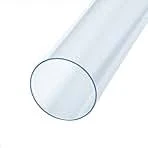Dec . 20, 2024 05:31 Back to list
ppr water pipe
Understanding PPR Water Pipes A Comprehensive Overview
PPR water pipes, or Polypropylene Random Copolymer pipes, have emerged as a popular choice in modern plumbing systems due to their remarkable properties and versatility. These pipes, made from a type of polypropylene that is known for its excellent resistance to various temperatures and pressures, are ideal for transporting water in both residential and industrial settings. In this article, we will explore the benefits, applications, and installation techniques of PPR water pipes.
One of the most significant advantages of PPR water pipes is their durability. Unlike traditional materials such as metal and PVC, PPR pipes are highly resistant to corrosion and scaling, which makes them suitable for transporting hot and cold water. Their ability to withstand temperatures up to 95°C (203°F) allows them to be used in hot water systems without the risk of degradation. Furthermore, PPR pipes have a long lifespan, often exceeding 50 years, which makes them a cost-effective solution for long-term plumbing needs.
Understanding PPR Water Pipes A Comprehensive Overview
PPR water pipes are also lightweight and easy to handle, which simplifies the installation process. Unlike heavy metal pipes that require special tools and equipment for transportation and installation, PPR pipes can be cut and joined using simple techniques. The fusion welding method, commonly used for connecting PPR pipes, produces a joint that is as strong as the pipe itself, ensuring a leak-proof and reliable plumbing system. This method reduces the risk of water leaks and saves time and labor costs.
ppr water pipe

In terms of environmental impact, PPR pipes are a sustainable option. They are recyclable, and their production results in lower emissions compared to some other types of piping materials. Moreover, PPR pipes do not leach harmful chemicals into the water supply, contributing to safer drinking water for communities.
Applications of PPR water pipes are vast and diverse. They are commonly used in residential plumbing systems for both hot and cold water supply lines. In addition, they find applications in heating systems, irrigation systems, and industrial fluid transportation. Their resistance to chemicals and temperature fluctuations makes them suitable for various industrial applications, including in factories and laboratories.
Despite their many advantages, it’s essential to consider some limitations when selecting PPR pipes. While they perform excellently in most applications, PPR pipes should not be exposed to direct sunlight for extended periods as UV rays can degrade the pipe material. Additionally, it is vital to ensure that the installation is carried out by qualified professionals to uphold the performance standards of PPR systems.
In conclusion, PPR water pipes represent a modern and efficient solution for plumbing needs, characterized by their durability, ease of installation, and environmental friendliness. As industries and consumers continue to seek more sustainable and reliable plumbing options, the popularity of PPR pipes is likely to grow. Whether for residential, commercial, or industrial use, investing in PPR water pipes can provide long-lasting benefits and peace of mind regarding water supply infrastructure.
-
Durable HDPE Sheet | Versatile & Impact-Resistant Plastic
NewsAug.13,2025
-
Premium PVC Soft Sheets: Clear, Flexible & Durable
NewsAug.12,2025
-
Premium PVC Round Rods: Durable, Chemical Resistant, Easy to Machine
NewsAug.11,2025
-
PP U-channel: Chemical-Resistant, Lightweight & Durable
NewsAug.10,2025
-
Transparent PVC Pipe: Clear Flexible Tubing for Fluids
NewsAug.09,2025
-
Durable PP Rigid Sheet: Versatile & High-Quality Plastic Panels
NewsAug.08,2025

